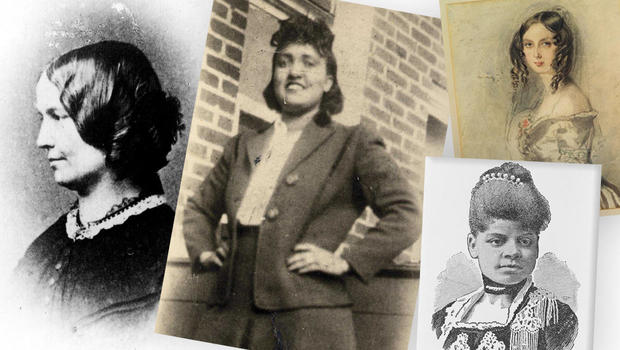Ida B. Wells, who was born a slave in 1862 and went on to become the most famous black woman of her time as a journalist and civil rights activist, never had an obituary in The New York Times. Neither did accomplished authors Sylvia Plath or Charlotte Brontë, or photographer Diane Arbus. They are among the women targeted in a new series called “Overlooked” that will publish obituaries for women who were not singled out for the honor at the time.
The first set of obituaries were rolled out March 8 — International Women’s Day. New York Times national reporter Caitlin Dickerson, who wrote Wells’ obituary, told CBSN’s Elaine Quijano the paper is “acknowledging now that the New York Times was, quite honestly, part of the problem.”
“The New York Times is the paper of record — it always, to a certain extent, reflected the culture of the moment,” Dickerson said. “When we talk about Ida B. Wells, for example, born in the 1860s, we’re talking about a moment when we, as a general culture, didn’t pay attention to African Americans — especially African American women.”

Charlotte Brontë, Henrietta Lacks, Ada Lovelace and Ida B. Wells are some of the prominent women belatedly getting obituaries in The New York Times.
CBS News
Dickerson said “everybody in the building” was eager to be involved. “I think this is going to be a rolling project,” Dickerson said.
The interest, Dickerson noted, reflects how important the issues of gender and inequality are even in a time of fast-breaking news. As Quijano pointed out, even in the last two years, only 20 percent of obituaries are written about women.
Dickerson said there will be more obituaries coming down the pike.
“The list goes on, we’ve got photographers, we’ve got writers, we’ve got scientists — we’ve got more than 100 people featured right out of the gate,” Dickerson said. “Also and we’re encouraging readers to please let us know who you think we’ve missed — women, but also men of color — we want to address these inequities of our time.”
As for Dickerson herself, she said that as a black investigative reporter, she was drawn to Wells. But she learned so much more about Wells’ fascinating and groundbreaking life while writing the obituary.
“I knew that she was really courageous and went up against forces much more powerful from herself,” Dickerson said. “The details are really incredible.”
Orphaned at 16, Wells then took care of six of her siblings and at 21 organized her first economic boycott — a strategy that later became common during the Civil Rights Era of the 1960s. “Very infrequently do you hear Ida B. Wells credited with that work,” Dickerson noted.
In Wells’ later years, she took on the cause of mass incarceration. As for The New York Times, Dickerson said that at the time, they criticized her for being too bold.
Watch more of Caitlin Dickerson’s interview with CBSN’s Elaine Quijano in the video player at the top of this page or by clicking here.
© 2018 CBS Interactive Inc. All Rights Reserved.

